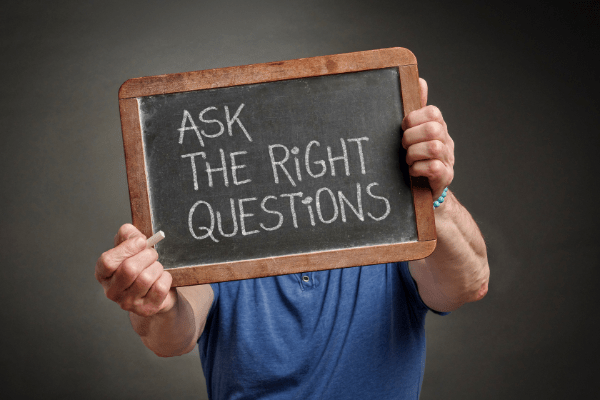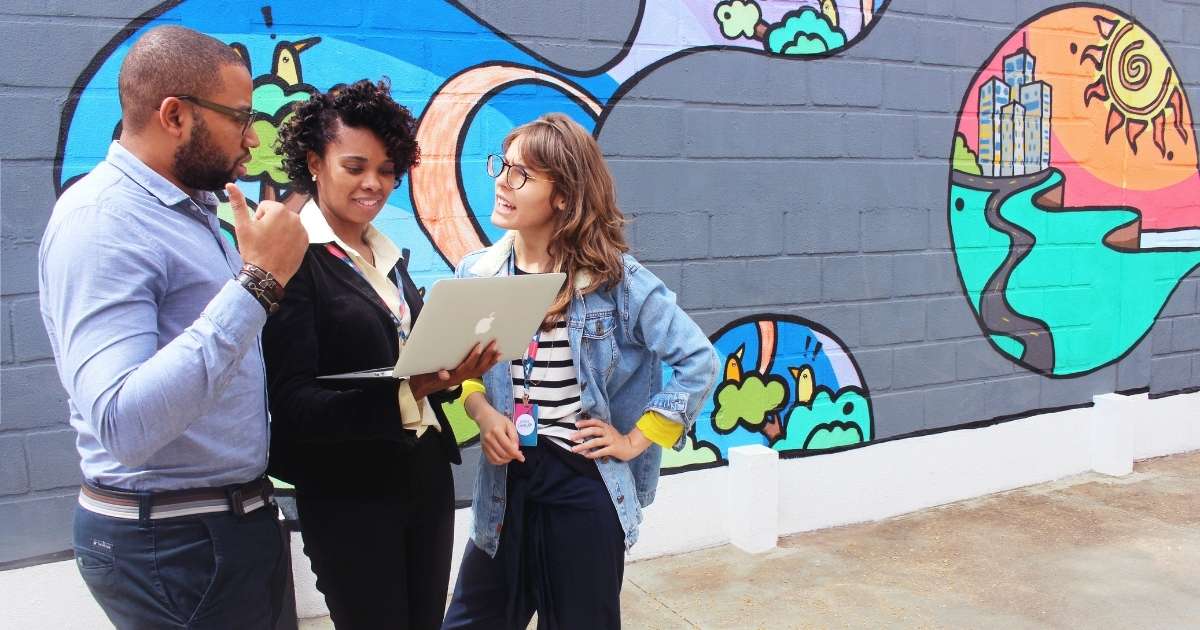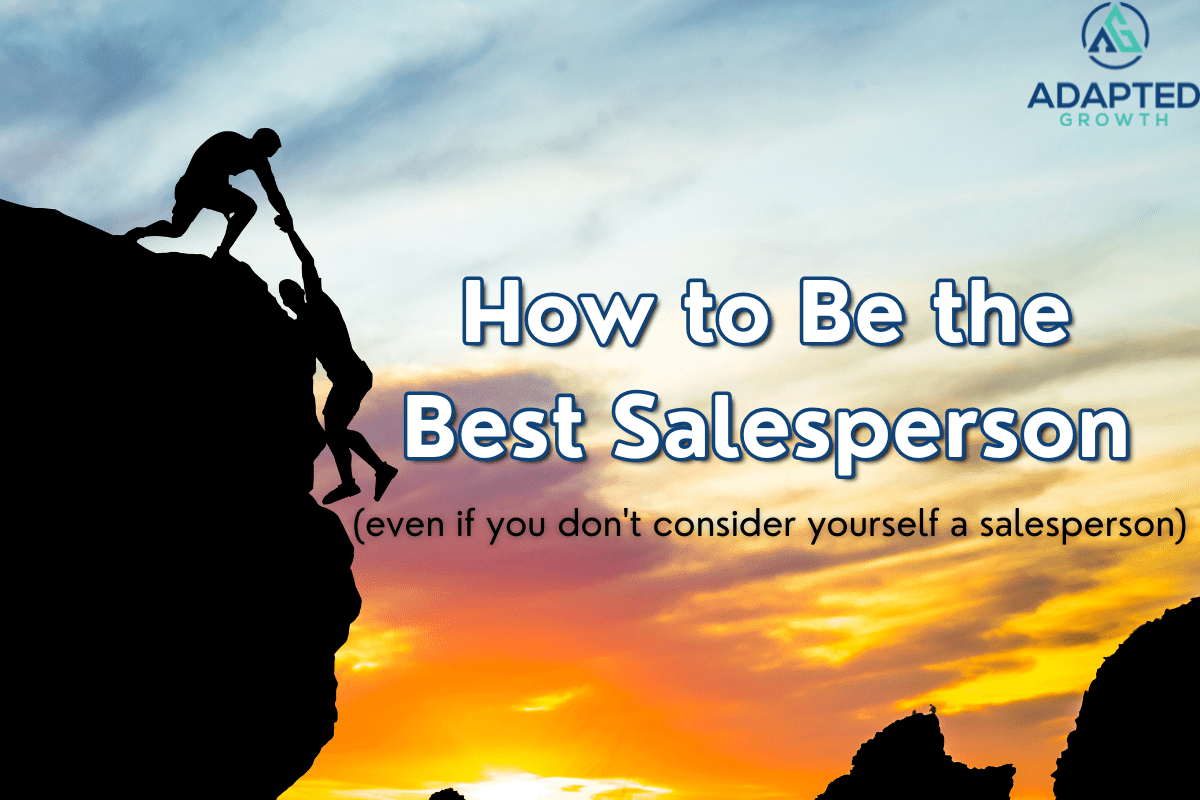If you’re a founder, you’re likely playing the role of salesperson by default, not by choice. You care about your product and believe in the work. But sales might feel uncomfortable, unfamiliar, or even inauthentic. However, knowing how to be the best salesperson will help you successfully grow your business.
Here’s the good news: you don’t have to “act like a salesperson” to sell well.
In fact, the best salespeople aren’t focused on selling at all. They focus on helping.
Helping Earns Trust Faster Than Pitching
Imagine walking into a store and being immediately swarmed with features, discounts, or pushy sales tactics. Now compare that to someone who calmly asks, “What brought you in today?” and actually listens to your answer.
That’s the difference between pushing a sale and opening a conversation.
When you show up with a mindset of helping first, you change the dynamic from “me vs. you” to “let’s figure this out together.”
In B2B or service-based sales, especially when selling something complex or unfamiliar, this mindset builds trust much faster than a slick pitch ever could.
Here’s the thing: there’s nothing wrong with including “sell more” as a reason for learning how to be the best salesperson. The number of deals you close has a direct impact on your success.
However, that’s not a priority for your prospects. Getting help and improving their lives is. That’s why the ‘H’ in SHERPA stands for ‘Helpful’.

What Does “Helping” Actually Look Like?
First, here are the things that it does not mean. Helping shouldn’t involve:
- Giving away free work, time, or IP (unless it’s a give-back opportunity that you are financially able to provide or part of your lead gen strategy, of course)
- Saying yes to everyone, even clearly unqualified prospects
- Avoiding difficult questions or conversations, such as the budget discussion
Helping means being curious, honest, and direct to determine if you are genuinely the best person to solve their problems. It means asking real questions like:
- What are you hoping to change by investing in this?
- What’s holding you back from solving it now?
- What happens if nothing changes?
Let’s say a lead asks for a demo. Instead of jumping into features, a helper-first founder might respond with:
“I’m happy to show you around! But can I ask a couple of questions first to make sure I’m focusing on what really matters to you?”
That small shift changes the entire dynamic. You’re no longer selling. You’re diagnosing. And then you’re guiding toward the best solution (even if it isn’t yours).

Questions Help You Be the Best Salesperson
Most people don’t want to be sold to, but they do want help solving their problems.
The most effective sales conversations take a holistic approach, leading with curiosity and clarity. People feel that. Knowing you’re helping them figure out what they need—not pressuring them into a close they don’t want—enables you to gain and nurture their trust within a single conversation.
Sometimes, that means your offer is the right fit. Sometimes it’s not. Either way, you’re building credibility, and that has long-term value, especially as your business grows.
But how do you do it?
The easy answer is that you ask questions and listen to their answers.
If you’ve gone through my SHERPA Selling System, you already have a repeatable framework for ensuring you ask questions that fully uncover your prospects’ needs and expectations.
If you haven’t, ask the questions that will give you the whole story behind their issue. Make sure you at least try to find out:
- What the problem is (the more details, the better!)
- How long it’s been going on
- How it has impacted them and their business
- What they’ve done to fix it in the past
- And what the best solution and outcome look like
And, of course, you should ask about other important factors, including budget.
This information helps you both understand whether it’s worth moving forward together or moving on to a better fit.
If you genuinely want to learn how to be the best salesperson, you must take the time to understand what they need help with and whether you can provide it. When they feel that, they’ll trust you to guide them toward the right solutions for their needs.

Slow Down!
Another huge tip sales tip is to remember to take your time.
Sometimes we hear the answer we want, and it excites us. No shame, we’ve all been there.
But if we move too fast or show visible eagerness, we risk losing their trust. Or, even worse, missing an essential piece of information that could (or should) break the deal.
Even if they have the exact problem you are best suited to solve, stay curious. Keep asking questions to uncover the whole story.
They may have the right problem but the wrong budget. Or they might have a monumental budget, but it comes with expectations you cannot meet.
The more you know about them, the more you can qualify them as your best future clients.
Helping is a Leadership Skill
Founders often separate “sales” from “leadership.” However, the truth is that they’re deeply connected.
The same sales mindset that earns trust in a sales conversation — curiosity, humility, clarity — is what helps you lead a team, build strong client relationships, and grow a reputation for integrity.
And here’s the part most people overlook: the way you sell becomes the way your team sells. When you understand how to be the best salesperson, your sales team will follow suit.
If you plan to hire salespeople in the future, the sooner you clarify what “helping first” looks like in your process, the easier it will be to train others to sell with confidence and care.
Learn How to Be the Best Salesperson Through Authenticity
You don’t need to become someone else to sell well. And you don’t need a script that makes you cringe every time you say it.
You just need to care enough to ask good questions and to listen to the answers.
Helping first doesn’t mean avoiding the sale. It means earning the opportunity to provide a real solution that improves your clients’ lives and businesses.
That’s how to be the best salesperson. Not charm or pressure.
Just the intention to help before you try to close.

Would you like to learn more about how to be the best salesperson?
Find out what being a Sales Sherpa means and how this sales method can help you improve all of your relationships.
One of the most essential characteristics of successful salespeople is Empathy.
Another trait that makes a sales rep successful is being Resolute.
P represents Practiced since learning to do anything takes practice, including becoming a successful sales rep.
The last letter in SHERPA stands for Accepting because it’s one of the most valuable traits a successful salesperson can have.
Beyond just having the best set of traits for authentic selling, learn how to build a repeatable sales process and mindset in my book, “Selling From Scratch,” available in paperback, Kindle, and audio.









